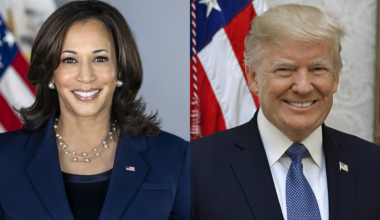A week on from the election of a new government, Megan Manson of the National Secular Society (NSS) reflects on what a Labour government might mean for secularism in the UK and the worrying trend of religious groups publishing manifestos to advance their sectarian agendas. This piece was originally posted on the NSS’s website on 8 July 2024.
All this, to my mind, underscores the need for a much more robust secularism in the UK. Perhaps we ought to start with the Church of England? The CoE, after all, was the original—and, thus far, the single most successful—sectarian religious group dedicated to imposing on the rest of us. Without such privilege enshrined in our law and state, other groups will have a much weaker foundation for their own claims to special treatment. ~ Daniel James Sharp, Editor

In his first address to the nation as prime minister, Keir Starmer promised that his government will ‘unite our country’.
This must be a priority for our new PM. The 2024 election campaigning and its result keenly illustrated why.
Rishi Sunak’s call for a general election predictably sparked a flurry of wishlists for the next government from myriad groups. But this election’s lobbying frenzy was overcast by a worrying shadow of sectarianism.
A coalition of Hindu organisations released a ‘Hindu Manifesto’ which said linking Hinduism to issues of caste and misogyny in India could be considered ‘Hinduphobia’, and that Hinduphobia should be criminalised.
The Board of Deputies of British Jews published a ‘Jewish Manifesto’ calling for future MPs to allow religious freedom to trump other rights, by protecting the controversial practises of ritual circumcision on baby boys and ritual non-stun slaughter of animals.
And the ‘Sikh Manifesto’ 2020-2025 from the Sikh Network called for a ‘code of practice’ on the right of Sikhs to wear religious items such as swords and recognition of ‘anti-Sikh hate’ in a ‘similar fashion to Anti-Semitism and Islamophobia’.
All three manifestos called for more support for state-funded, segregated faith schools for their respective communities, as did the Catholic Union. Interestingly, a newer Sikh Manifesto from the Sikh Network omitted this call—a step in the right direction.
All three manifestos also made some barbed references to sections of other religious communities. The Hindu Manifesto accused Islamist and Sikh extremists of ‘acts of violence’ against UK Hindus and suggested that the government is giving more support to Muslim and Jewish causes than Hindu ones. Conversely, the latest Sikh Manifesto says the government ‘needs to confront Hindu nationalist groups’ in the UK, while lamenting that Sikhs are under-represented in the Lords compared with Jews, Muslims, and Hindus. And the Jewish Manifesto expressed that ‘Islamist extremists’ are one of the ‘major threats to the immediate physical security of British Jews’.
These concerns are all valid. But their inclusion in each religious group’s ‘manifesto’ suggests that cracks between British religious communities are widening.
Meanwhile, a group of Muslim organisations launched ‘The Muslim Vote’, whose ‘high level pledges’ include adopting the contentious All-Party Parliamentary Group on British Muslims’ ‘Islamophobia’ definition and ensuring school rules have exemptions to accommodate pupils wearing ‘religious symbols’ and attending Friday prayers.
A similar ‘Muslim Vote’ campaign has been launched in Australia, ahead of the next federal election. The country’s prime minister Anthony Albanese has spoken out against it, saying: ‘I don’t think, and don’t want, Australia to go down the road of faith-based political parties because what that will do is undermine social cohesion.’
He’s right. But in the UK, too many candidates have instead rushed to embrace faith-based politics. Some have publicly endorsed the various faith manifestos and posted pictures of themselves clutching them on social media.
And sectarian politics had significant success in this election. Despite its overall victory, Labour lost four seats to independent candidates backed by The Muslim Vote in Leicester, Blackburn, Birmingham Perry Barr, and Dewsbury and Batley. Other Labour MPs only just held on to their seats, including the new health secretary Wes Streeting, who retained his seat with just 528 more votes than the candidate backed by The Muslim Vote, Leanne Mohamad.
Sectarianism, particularly in connection to the Israel-Gaza conflict, also underpinned appalling campaigns of abuse and threats against candidates. Tanmanjeet Singh Dhesi and Rushanara Ali were smeared as genocide supporters, Naz Shah was followed around and heckled by a man who called her a ‘dirty, dirty Zionist’, and Jess Phillips was heckled during her victory speech with cries of ‘free Palestine’. Phillips called it the ‘worst election’ she’d ever stood in, and that one Labour activist had her tyres slashed.
Starmer’s Labour government has inherited a country where most people have no religion, Christians are a minority for the first time in history, and other religions are growing in number and variety. But most of us don’t let religion divide us. During his campaign, Sunak called the UK ‘the world’s most successful multi-ethnic, multi-faith democracy’. It is true that, in general, we rub along pretty well with each other, but the lack of separation between religion and state creates unequal citizenship and so undermines this claim.
The election has revealed powerful forces which threaten to split our communities apart and pit them against each other. And many of our representatives seem all too happy to help them, for the sake of votes.
This approach will not heal divisions. It will instead entrench the notion that religious communities should compete with each other, rather than work for the mutual benefit of all UK citizens of all religions and beliefs.
How will Starmer face this challenge? So far, not all signs have been encouraging. Despite his personal atheistic beliefs, Starmer is in danger of falling into the same trap by appealing to faith-based interests. He told Premier Christianity magazine that his government will work ‘in partnership with churches and faith communities’, using a ‘network of parliamentary faith champions’.
Starmer needs to ensure that this ‘partnership’ doesn’t lead to a balkanization of public services or become a vehicle for proselytising and religious privilege.
Before the election, Starmer said his government would be ‘even more supportive of faith schools’ than the Conservatives. An early test for Labour will be whether they resist Catholic bishops’ demands to continue with the Tories’ dreadful plan to abolish the 50% cap on faith-based admissions at free schools, paving the way for a new wave of religiously, ethnically, and socio-economically segregated faith schools.
If Starmer wants to make sure his vision for a changed United Kingdom doesn’t turn it into a divided one, he and his party must consider carefully their approach to religion. Rather than giving more and more privileges to religious elites at the expense of equality, cohesion, and fairness, the government should work to ensure our society is a level playing field based on shared values, where individuals of all religions and beliefs have the opportunity to flourish.
Let’s hope the change Labour promised is in the right direction.
Related reading
What secularists want from the next UK Government, by Stephen Evans
The case of Richard Dawkins: cultural affiliation with a religious community does not contradict atheism, by Kunwar Khuldune Shahid
Faith schools: where do the political parties stand? by Stephen Evans
Circumcision: the human rights violation that no one wants to talk about, by Alejandro Sanchez
Britain’s liberal imam: Interview with Taj Hargey, by Emma Park
Cannibal Speaks Out, by Modus Tollens
Islamic identity politics is a threat to British democracy, by Khadija Khan
Three years on, the lessons of Batley are yet to be learned, by Jack Rivington
Secularism and the struggle for free speech, by Stephen Evans
Bring on the British republic – Graham Smith’s ‘Abolish the Monarchy’, reviewed, by Daniel James Sharp
Secularisation and Protestantism in the 2021 Northern Ireland Census, by Charlie Lynch
The need to rekindle irreverence for Islam in Muslim thought, by Kunwar Khuldune Shahid
British Islam and the crisis of ‘wokeism’ in universities: interview with Steven Greer, by Emma Park








4 comments
A subject of interest to this site was also included in the Labour Party manifesto.
https://labour.org.uk/change/serving-the-country/
Constitutional reform
Although Labour recognises the good work of many peers who scrutinise the government and improve the quality of legislation passed in Parliament, reform is long over-due and essential. Too many peers do not play a proper role in our democracy. Hereditary peers remain indefensible. And because appointments are for life, the second chamber of Parliament has become too big.
The next Labour government will therefore bring about an immediate modernisation, by introducing legislation to remove the right of hereditary peers to sit and vote in the House of Lords. Labour will also introduce a mandatory retirement age. At the end of the Parliament in which a member reaches 80 years of age, they will be required to retire from the House of Lords.
Labour will ensure all peers meet the high standards the public expect of them, and we will introduce a new participation requirement as well as strengthening the circumstances in which disgraced members can be removed. We will reform the appointments process to ensure the quality of new appointments and will seek to improve the national and regional balance of the second chamber.
Whilst this action to modernise the House of Lords will be an improvement, Labour is committed to replacing the House of Lords with an alternative second chamber that is more representative of the regions and nations. Labour will consult on proposals, seeking the input of the British public on how politics can best serve them.
There is no mention of the Bench of Bishops, party patronage, donations to political parties, equalisation of retirement ages with the Commons, and whether “immediate” is immediate. I await developments agog.
jk
A thoughtful and timely reflection — thank you for shedding light on the growing risks of sectarian politics and the urgent need for stronger secular principles in the UK. Your analysis underscores how true unity can only be built on fairness, equality, and shared values rather than privilege for a few.
Regard Unissula
A thoughtful and eye-opening reflection on the challenges of faith-based politics in the UK. Thank you for highlighting how essential robust secularism is for true equality, fairness, and social cohesion—an important reminder as the new government takes shape.
Regard Unissula
Your email address will not be published. Comments are subject to our Community Guidelines. Required fields are marked *
Donate